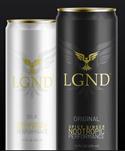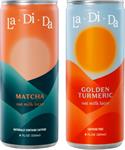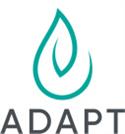Coca-Cola
Turkish Coke Unit To Stop Selling Herbal Tea Brand Doğadan In Three Countries
 Coca-Cola İçecek (CCI), a subsidiary of Turkish conglomerate Anadolu Group, announced it is ending sales and distribution activities of the herbal tea brand Doğadan in Turkey by the end of April. A company statement added that sales and distribution activities of the Doğadan brand in Kazakhstan and Azerbaijan would also be terminated as of April 30. The brand was acquired by the Coca Cola Co. in 2007 for $50 million. Doğadan’s share of CCI’s total volume in 2019 was 8.3 percent, while sales revenue accounted for 1.9 percent of CCI’s sales.[Image Credit: © The Coca-Cola Company]
Coca-Cola İçecek (CCI), a subsidiary of Turkish conglomerate Anadolu Group, announced it is ending sales and distribution activities of the herbal tea brand Doğadan in Turkey by the end of April. A company statement added that sales and distribution activities of the Doğadan brand in Kazakhstan and Azerbaijan would also be terminated as of April 30. The brand was acquired by the Coca Cola Co. in 2007 for $50 million. Doğadan’s share of CCI’s total volume in 2019 was 8.3 percent, while sales revenue accounted for 1.9 percent of CCI’s sales.[Image Credit: © The Coca-Cola Company]
Coca-Cola Japan Eliminates Labels From Multi-Pack Bottles Of I Lohas Water
 Coca-Cola Japan this month is switching to new bottle designs for its market leading “clear beverages” brand I Lohas water that eliminate labels, are made from 100 percent recycled plastic, and retain the malleability that makes them easy to crush into compact recyclable sizes. The new label-free bottle designs will be sold in cases displaying nutritional information, etc., of 24 for $26) at supermarkets, drug stores, and online retailers. Bottles sold separately will still have the label.[Image Credit: © Coca-Cola (Japan) Company, Limited]
Coca-Cola Japan this month is switching to new bottle designs for its market leading “clear beverages” brand I Lohas water that eliminate labels, are made from 100 percent recycled plastic, and retain the malleability that makes them easy to crush into compact recyclable sizes. The new label-free bottle designs will be sold in cases displaying nutritional information, etc., of 24 for $26) at supermarkets, drug stores, and online retailers. Bottles sold separately will still have the label.[Image Credit: © Coca-Cola (Japan) Company, Limited]
Nestle
Nestlé USA’s Growth Plan Applies Multiple Tactics
.jpg&width=125&height=129) Nestlé USA’s approach to growth and innovation is an entrepreneurial one. In fact, the company refers to itself as a “150-year-old start-up” because it pays close attention to beverage industry trends – e.g., the plant-based and functional categories – and evolving consumer preferences like convenience foods and drinks, like RTD beverages. The company’s approach to innovation involves strengthening base brands while embarking on new ventures and partnering. In addition to in-house product development, Nestlé USA is addressing burgeoning market opportunities through strategically planned partnerships, often with innovators and entrepreneurs. “Strategic transactions” with companies like Blue Bottle Coffee, Chameleon Cold Brew, and Starbucks Creamers are examples of that type of growth. The company’s in-house product development effort has led to creation of Snickers and TWIX Flavored Chocolate Milks, the Jacked Rabbit protein shake, Outshine Coconut Waters, and Chameleon Cold Brew Coffee.[Image Credit: © Nestlé]
Nestlé USA’s approach to growth and innovation is an entrepreneurial one. In fact, the company refers to itself as a “150-year-old start-up” because it pays close attention to beverage industry trends – e.g., the plant-based and functional categories – and evolving consumer preferences like convenience foods and drinks, like RTD beverages. The company’s approach to innovation involves strengthening base brands while embarking on new ventures and partnering. In addition to in-house product development, Nestlé USA is addressing burgeoning market opportunities through strategically planned partnerships, often with innovators and entrepreneurs. “Strategic transactions” with companies like Blue Bottle Coffee, Chameleon Cold Brew, and Starbucks Creamers are examples of that type of growth. The company’s in-house product development effort has led to creation of Snickers and TWIX Flavored Chocolate Milks, the Jacked Rabbit protein shake, Outshine Coconut Waters, and Chameleon Cold Brew Coffee.[Image Credit: © Nestlé]
Blockchain Technology Delivers Detailed Coffee Source Information To Nestlé Customers
 Nestlé announced it is now applying the IBM Food Trust blockchain technology platform to its Zoégas whole beans and roast/ground coffee brand in Sweden. Thanks to the accumulation of block chain-recorded data, coffee customers are now able to trace their arabica coffee back to one of three sources: Brazil, Rwanda, or Colombia. Nestlé partnered with The Rainforest Alliance to independently provide its certification information, guaranteeing the traceability of the coffee. Customers scan the QR code on the packaging to follow the coffee’s journey from the growing locations to the Zoégas factory in Helsingborg, Sweden, where the beans are roasted, grounded and packed. The data include information about farmers, time of harvest, transaction certificate for the specific shipments, as well as roasting period.[Image Credit: © Nestlé]
Nestlé announced it is now applying the IBM Food Trust blockchain technology platform to its Zoégas whole beans and roast/ground coffee brand in Sweden. Thanks to the accumulation of block chain-recorded data, coffee customers are now able to trace their arabica coffee back to one of three sources: Brazil, Rwanda, or Colombia. Nestlé partnered with The Rainforest Alliance to independently provide its certification information, guaranteeing the traceability of the coffee. Customers scan the QR code on the packaging to follow the coffee’s journey from the growing locations to the Zoégas factory in Helsingborg, Sweden, where the beans are roasted, grounded and packed. The data include information about farmers, time of harvest, transaction certificate for the specific shipments, as well as roasting period.[Image Credit: © Nestlé]
Other Companies
Paying Attention To Growth Trends Is Key To Success For Beverage Retailers
 Packaged beverage managers for convenience store chains like MAPCO Express have to stay tuned in to beverage industry trends to ensure their stores are stocked with products with the best sales potential. In the past few years, for example, beverage category managers had to react to the revival of the energy drink category, to the loyalty of consumers to local beverage trends, and to new government regulations, such as those targeting cannabidiol (CBD) drinks. It’s a dynamic challenge, but the c-store beverage business is growing. Beverage sales in convenience stores were $32.1 billion in 2019, up 4.2 percent for the 52 weeks ending Dec. 29, 2019, according to IRI. Besides energy drinks, beverage category managers have had to monitor sales within the better-for-you category, functional beverages, carbonated soft drinks(CSDs), and private label drink sales. Private label convenience/PET water, for example, took in $3.9 billion in c-store sales in 2019.[Image Credit: © (Joenomias) Menno de Jong from Pixabay]
Packaged beverage managers for convenience store chains like MAPCO Express have to stay tuned in to beverage industry trends to ensure their stores are stocked with products with the best sales potential. In the past few years, for example, beverage category managers had to react to the revival of the energy drink category, to the loyalty of consumers to local beverage trends, and to new government regulations, such as those targeting cannabidiol (CBD) drinks. It’s a dynamic challenge, but the c-store beverage business is growing. Beverage sales in convenience stores were $32.1 billion in 2019, up 4.2 percent for the 52 weeks ending Dec. 29, 2019, according to IRI. Besides energy drinks, beverage category managers have had to monitor sales within the better-for-you category, functional beverages, carbonated soft drinks(CSDs), and private label drink sales. Private label convenience/PET water, for example, took in $3.9 billion in c-store sales in 2019.[Image Credit: © (Joenomias) Menno de Jong from Pixabay]
Functional Beverage Company LGND Inks Distribution Deal For Southern California

Los Angeles-based producer of natural nootropic performance beverages LGND Inc. announced a partnership with Tenace Incubation for distribution in Southern California. Tenace serves beverage start-ups with distribution targeting top independent stores in the region. LGND’s line-up has two flavors: spicy LGND Original and fresh grapefruit and ginger LGND Silk. The company says the beverages avoid short energy spikes from sugar and caffeine, instead delivering focus and alertness over a longer period of time using a small amount of caffeine derived from green tea and guarana. The drinks also contain Acetyl-L-Carnitine and Alpha-GPC “to give the consumer the right energy curve.” They also contain memory enhancers citicoline and bacopa monnieri, along with chicory root for gut health. Both variants have 30 calories and are vegan friendly.[Image Credit: © LGND, INC.]
Start-Up Canned Oat Milk Latte Company LaDiDa Steers Clear Of Retail Distribution Model

Former Kombrewcha CEO Ariel Glazer’s new venture – the LaDiDa line of hemp-infused oat milk canned lattes – is succeeding without relying on traditional retail distribution. Glazer instead ships direct-to-consumer via an on-demand text message ordering model. Consumers sign up online, then purchase the lattes – available so far in Matcha and Golden Turmeric flavors – from then on by sending a text message. A subscription is also available in the customer’s preferred time frame of every week, or every two or three weeks. Because distribution centers are still small and scattered around the country, free overnight delivery is offered to 41 states. A new Honey Lavender launching in May will sell for $60 per one-time purchase of a 6-pack of 8 oz. cans, or for a $45 subscription.[Image Credit: © LALA Brews LLC]
With Volumes Soft, Carbonated Soft Drinks Diversify To Keep Revenue Up
 Carbonated soft drinks (CSDs), a staple of the beverage market, have experienced 15 years of volume declines as consumers have shifted preferences. The trend is not slowing. Volume sales are expected to continue declining, and value sales will continue to grow, but will slow slightly each year over the next five years. The perception of carbonates as unhealthful will only accelerate among consumers, leading to falling consumption rates, experts say. Manufacturers are likely to increase unit prices, mainly from smaller pack sizes, and focus on single-serve through convenience and at register displays. Other trends – functional non-cola carbonates, diet drinks, natural ingredients, craft soda launches, hybrid brands, caffeinated energy offerings, etc. – will help pick up the slack. The combination of pricing, packaging mix, and increased immediate consumption have improved category revenues in recent years. But volume is likely to remain soft, according to the experts.[Image Credit: © Herbich from Pixabay]
Carbonated soft drinks (CSDs), a staple of the beverage market, have experienced 15 years of volume declines as consumers have shifted preferences. The trend is not slowing. Volume sales are expected to continue declining, and value sales will continue to grow, but will slow slightly each year over the next five years. The perception of carbonates as unhealthful will only accelerate among consumers, leading to falling consumption rates, experts say. Manufacturers are likely to increase unit prices, mainly from smaller pack sizes, and focus on single-serve through convenience and at register displays. Other trends – functional non-cola carbonates, diet drinks, natural ingredients, craft soda launches, hybrid brands, caffeinated energy offerings, etc. – will help pick up the slack. The combination of pricing, packaging mix, and increased immediate consumption have improved category revenues in recent years. But volume is likely to remain soft, according to the experts.[Image Credit: © Herbich from Pixabay]
Jamie Colbourne Replaces Jennifer Cue As CEO At Jones Soda
Hemp-Infused “Super Drinks” Launched By Adapt Brands

Calif.-based health and wellness company Adapt Brands (Santa Monica), which specializes in CBD supplements, announced the launch of a line of functional superfood-infused coconut waters. Adapt SuperWater variants contain cannabinoids targeting pain and muscle soreness and cognitive function support, along with superfoods to boost energy, metabolism and overall health and wellness. The so-called “super drinks” are available online and at Los Angeles-area retailers with three infusions: Original Coconut, Lime, and Pomegranate, each containing 25 mg of hemp extract per bottle. Adapt SuperWater contains 100 percent pure coconut water, organic monk fruit and natural flavors, natural electrolytes and potassium, and no added sugar or preservatives.[Image Credit: © ADAPT BRANDS]
Kirin Launches Another Alcohol-Free Beer In Japan
 Kirin Greens Free, a new alcohol-free beer made from only three ingredients, is launching nationwide in Japan this month, the company announced. Kirin Greens Free, which contains only wheat, hops, and water, is being marketed as a “natural beer-tasting carbonated beverage.” According to the company, the beer is the first in Japan which does not use additives such as flavors and artificial sweeteners to create a taste similar to beer. Non-alcoholic beers constitute about five percent of all liquor – i.e., wine, sake, spirits, and beer – in the Japanese market. Asahi, Suntory, and Sapporo are also in the non-alcoholic beer business with products including Asahi Dry Zero, All-Free All-Time, and Mugi no Kutsurogi beer respectively. Kirin Green Free will be available in 350mL and 500mL cans. The company hopes to sell approximately 1.58 million cases or 20,000 kiloliters. [Image Credit: © Kirin Holdings Company, Ltd.]
Kirin Greens Free, a new alcohol-free beer made from only three ingredients, is launching nationwide in Japan this month, the company announced. Kirin Greens Free, which contains only wheat, hops, and water, is being marketed as a “natural beer-tasting carbonated beverage.” According to the company, the beer is the first in Japan which does not use additives such as flavors and artificial sweeteners to create a taste similar to beer. Non-alcoholic beers constitute about five percent of all liquor – i.e., wine, sake, spirits, and beer – in the Japanese market. Asahi, Suntory, and Sapporo are also in the non-alcoholic beer business with products including Asahi Dry Zero, All-Free All-Time, and Mugi no Kutsurogi beer respectively. Kirin Green Free will be available in 350mL and 500mL cans. The company hopes to sell approximately 1.58 million cases or 20,000 kiloliters. [Image Credit: © Kirin Holdings Company, Ltd.]
Copyright 2026 Business360, Inc.

